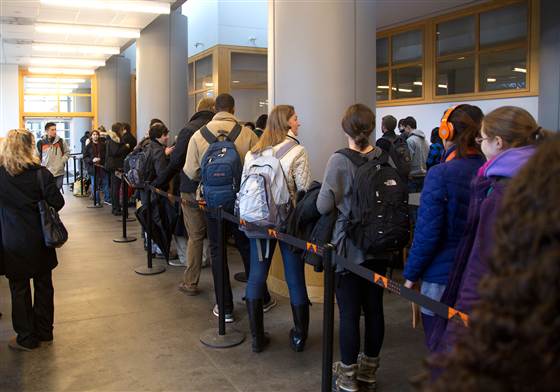As a college student, meningitis is always on my radar. When it was time to get my meningitis vaccine before heading off to college, I didn't ask any questions because I knew that the risk of contracting meningitis in college is a serious threat.
In March 2013, a meningitis outbreak occurred at Princeton University after eight cases of meningitis were reported. According the to CDC, this specific type of meningitis was caused by the B strain meningococcal bacteria. This piece of information might not seem particularly important, but this is a serious designation because the meningitis vaccine that is licensed in the United States only protects against the A, C, Y, and W strains. As a result, several health departments are working with Princeton to contain the outbreak, and hopefully providing students with the appropriate vaccine coverage. In fact, a vaccine campaign to provide the students at Princeton with the vaccine against the strain B meningococcal bacteria has been scheduled for this week.
When I was researching the strain B meningitis vaccine, I came across this article about the current controversy surrounding the strain B meningitis vaccine in New Zealand. The article is fairly long, but I think it provides an interesting look at the current issues surrounding declining vaccination rates and concerns about vaccine efficacy and safety. Many of the ideas and concerns shared in the article are reflective of a similar situation in the United States.
In March 2013, a meningitis outbreak occurred at Princeton University after eight cases of meningitis were reported. According the to CDC, this specific type of meningitis was caused by the B strain meningococcal bacteria. This piece of information might not seem particularly important, but this is a serious designation because the meningitis vaccine that is licensed in the United States only protects against the A, C, Y, and W strains. As a result, several health departments are working with Princeton to contain the outbreak, and hopefully providing students with the appropriate vaccine coverage. In fact, a vaccine campaign to provide the students at Princeton with the vaccine against the strain B meningococcal bacteria has been scheduled for this week.
When I was researching the strain B meningitis vaccine, I came across this article about the current controversy surrounding the strain B meningitis vaccine in New Zealand. The article is fairly long, but I think it provides an interesting look at the current issues surrounding declining vaccination rates and concerns about vaccine efficacy and safety. Many of the ideas and concerns shared in the article are reflective of a similar situation in the United States.


 RSS Feed
RSS Feed